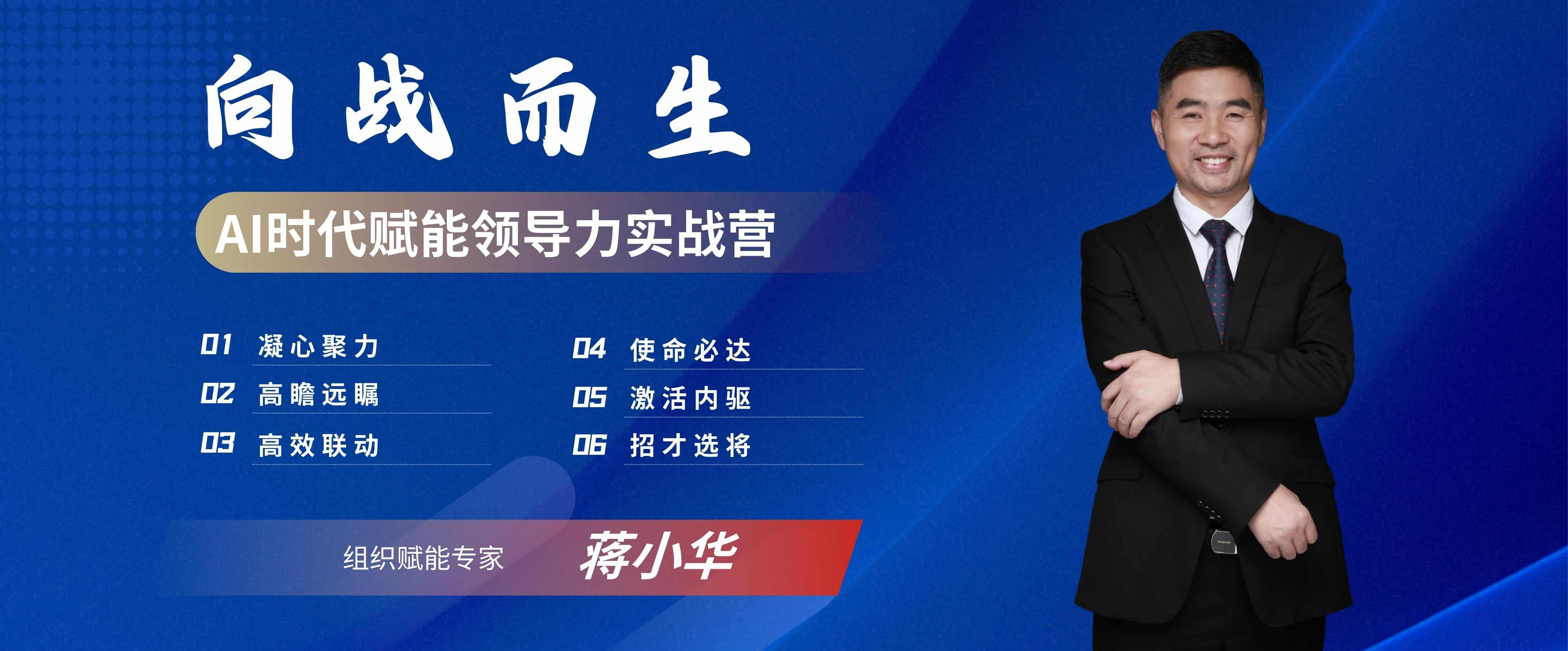- 管理培訓(xùn):計(jì)劃與目標(biāo)管理
- 互聯(lián)網(wǎng)思維管理模式1.0版——中國(guó)第
- 中高層管理核心能力提升
- 培訓(xùn)和發(fā)展管理專家勝任力特訓(xùn)營(yíng)
- HRBP:業(yè)務(wù)伙伴式的人力資源管理
- 管理者高效溝通技巧與執(zhí)行力提升
- 現(xiàn)場(chǎng)6S與目視化管理
- 如何有效引領(lǐng)與管理80\90后員工實(shí)
- 石油行業(yè)直線經(jīng)理人戰(zhàn)略管理能力提升
- 2011最新經(jīng)濟(jì)形勢(shì)解讀與銀行核心競(jìng)
- 毛澤東紅色管理智慧-考察研修班
- 儲(chǔ)備干部管理
- 銀行風(fēng)險(xiǎn)管理
- 海外工程項(xiàng)目管理
- 超市銷售管理
- 中層干部管理能力提升訓(xùn)練
- 目標(biāo)與計(jì)劃管理
- DISC行為風(fēng)格管理
- 快消品商超渠道管理
- 銀行品牌營(yíng)銷管理
管理心理學(xué):心理學(xué)在企業(yè)管理中的應(yīng)用 Management Psychology
課程編號(hào):47294
課程價(jià)格:¥0/天
課程時(shí)長(zhǎng):2 天
課程人氣:277
- 課程說(shuō)明
- 講師介紹
- 選擇同類課
成熟企業(yè)的中高層經(jīng)理、創(chuàng)業(yè)公司的創(chuàng)始團(tuán)隊(duì)
【培訓(xùn)收益】
1.拓展知識(shí)領(lǐng)域:了解心理學(xué)對(duì)管理的意義 2.提升管理效率:優(yōu)化影響效率的心理因素 3.豐富領(lǐng)導(dǎo)技能:掌握符合心理的領(lǐng)導(dǎo)技能 4.預(yù)見(jiàn)發(fā)展趨勢(shì):預(yù)見(jiàn)未來(lái)管理的心理趨勢(shì)
第一章 概述:從心理角度認(rèn)識(shí)知識(shí)體系
課前思考:心理學(xué)和管理學(xué),哪一門學(xué)科更加基礎(chǔ)?
一 什么是基礎(chǔ)學(xué)科
1.學(xué)科體系:上游學(xué)科、前位學(xué)科
2.學(xué)科序列:硬科學(xué)、軟科學(xué)、準(zhǔn)科學(xué)、類科學(xué)
二 什么是心理學(xué)
1.研究對(duì)象:心理學(xué)的研究對(duì)象,行為和認(rèn)知
2.研究層面:心理學(xué)的六個(gè)研究層面
三 心理學(xué)的三重性
1.知識(shí):客觀的知識(shí)體系
2.技能:作用于外的技能
3.能力:作用于內(nèi)的能力
本章教學(xué)目標(biāo):讓學(xué)員了解心理學(xué)為什么是基礎(chǔ)科學(xué)
Course outline
Chapter 1 Overview: Reviewing science from a psychological perspective
Pre-training question: Which subject is more basic, psychology or management?
1.What is basic science
a)Disciplinary system: upstream disciplines, former disciplines
b)Discipline sequence: hard science, soft science, sub- and quasi-science
2.what is psychology
a)Object: the research object of psychology, behavior and cognition
b)Level: six research levels of psychology
3.The features of psychology
a)Knowledge: Objective knowledge system
b)Skills: Skills to apply to the outside
c)Ability: Ability to apply to oneself
Benefits from this chapter: understanding psychology as a basic science
第二章 演化:從心理角度了解管理演化
課前思考:人的工作本性是勤奮,還是懶惰?
一 什么是管理心理學(xué)
1.效率科學(xué):如何提高工作效率
2.人性科學(xué):如何改善心理感受
二 管理心理學(xué)的里程碑
1.經(jīng)濟(jì)人假設(shè):科學(xué)管理運(yùn)動(dòng)
2.社會(huì)人假設(shè):霍桑工廠實(shí)驗(yàn)
3.上進(jìn)人假設(shè):需求五層次理論
4.自主人假設(shè):X理論與Y理論
5.成就人假設(shè):動(dòng)機(jī)雙因素理論
6.興趣人假設(shè):工作特性理論
案例講解:心理學(xué)對(duì)管理的推動(dòng)
本章教學(xué)目標(biāo):讓學(xué)員了解管理心理學(xué)的發(fā)展過(guò)程
Chapter 2 Evolution: Reviewing management from a psychological perspective
Pre-training question: Is the human nature of work diligence or laziness?
1.what is management psychology
a)Efficiency science: how to improve work efficiency
b)Human Science: How to Improve Mental Feelings
2.Human nature assumptions in management psychology
a)Economic man: Scientific Management Movement
b)Social man: Hawthorne Factory Experiment
c)Self-motivated man: Hierarchy of needs
d)Autonomous man: Theory X and Theory Y
e)Pursuing man: two-factor theory of motivation
f)Interested man: job characteristic theory
Case explanation: Psychology's promotion of management
Benefits from this chapter: understanding the evolution of management psychology
第三章 績(jī)效:從心理角度優(yōu)化績(jī)效因素
課前思考:績(jī)效改進(jìn),主要靠勤奮還是靠智慧?
一 哪些心理因素會(huì)影響工作效率
1.屬事因素:程序、流程、信息、工具
2.屬人因素:感受、學(xué)習(xí)、能力、態(tài)度
二 哪些屬人因素要重點(diǎn)管理
1.學(xué)習(xí)過(guò)程:工作怎樣從陌生到熟悉
2.融入過(guò)程:團(tuán)隊(duì)怎樣從排斥到歸屬
3.提高過(guò)程:技能怎么從良好到卓越
4.發(fā)展過(guò)程:能力怎么從局部到全面
三 哪些屬事因素要重點(diǎn)管理
1.工作分解:工作任務(wù)怎么有效分解
2.程序改進(jìn):工作方法怎么持續(xù)改進(jìn)
3.信息簡(jiǎn)化:怎樣能讓信息易于傳播
4.工具優(yōu)化:怎樣能讓工具易于使用
案例講解:人人都參與的精益管理
小組練習(xí)1:工作分解的技巧練習(xí)
本章教學(xué)目標(biāo):讓學(xué)員了解影響績(jī)效的心理因素
Chapter 3 Performance: Optimizing psychological factors of performance
Pre-training question: Is diligence the main source of performance?
1.What psychological factors will affect work efficiency?
a)Matter factors: procedures, processes, information, tools
b)Human factors: feelings, learning, ability, attitude
2.Which human factors should be focused on management?
a)Learning process: how to make the work from unfamiliar to familiar
b)Integration process: how the team goes from rejection to integration
c)Improvement process: how to improve skills from good to excellent
d)Development process: How to achieve comprehensive ability
3.Which matter factors should be managed?
a)Work breakdown: how to effectively breakdown tasks
b)Process improvement: how to continuously improve working methods
c)Information simplification: how to make information easy to spread
d)Tool optimization: how to make tools easy to use
Case study: the Lean management of total participation
Group exercise 1: Work breakdown skills exercise
Benefits from this chapter: understanding the psychological factors that affect performance
第四章 技能:從心理角度提升管理技能
課前思考:如何給管理技能分類?
一 如何提高工作中的人際技能
1.傾聽(tīng)技巧:如何增加團(tuán)隊(duì)的凝聚力
2.表達(dá)能力:如何提高下屬的理解力
3.激勵(lì)方式:如何引導(dǎo)下屬主動(dòng)成長(zhǎng)
4.行為糾正:如何推動(dòng)下屬積極改善
小組練習(xí)2:傾聽(tīng)和激勵(lì)技巧練習(xí)
二 如何提高工作中的概念技能
1.計(jì)劃能力:如何提高思維的計(jì)劃性
2.判斷能力:如何提高判斷的準(zhǔn)確性
3.分析能力:如何提高分析的深刻性
4.決策能力:如何提高決策的有效性
三 管理者需要哪些關(guān)鍵技能
1.聯(lián)動(dòng)設(shè)置:怎樣讓團(tuán)隊(duì)工作更高效
2.升維規(guī)劃:怎么讓團(tuán)隊(duì)視野更開(kāi)闊
小組練習(xí)3:團(tuán)隊(duì)指令的技巧練習(xí)
本章教學(xué)目標(biāo):讓學(xué)員掌握符合心理的領(lǐng)導(dǎo)技能
Chapter 4 Skills: Improving psychological skills of management
Pre-training question: How to classify management skills?
1.How to improve human skills
a)Listening skills: how to increase team cohesion
b)Expressing skills: how to improve the understanding of subordinates
c)Incentive skills: how to guide subordinates’ development
d)Correcting skills: how to correct subordinates’ working behavior
Group exercise 2: Practice listening and motivational skills
2.How to improve conceptual skills
a)Planning ability: how to improve the planning of thinking
b)Judgment ability: how to improve the accuracy of judgment
c)Analytical ability: how to improve the depth of analysis
d)Decision-making ability: how to improve the effectiveness of decision
3.Key skills that managers need
a)Linkage settings: how to make team work more efficient
b)Upgrading planning: how to make the team's vision wider
Group exercise 3: Skills exercise of team instruction
Benefits from this chapter: mastering the psychological skills of management
第五章 環(huán)境:從心理角度改善工作環(huán)境
課前思考:人們喜歡什么樣的工作環(huán)境?
一 什么是工作環(huán)境
1.物理環(huán)境:物化的外在空間
2.感受環(huán)境:個(gè)人的內(nèi)在感受
3.人際環(huán)境:人際的互動(dòng)感受
二 感受環(huán)境的改善
1.情緒改善:情緒感受有哪些共情
2.審美改善:審美體驗(yàn)有哪些共性
3.角色改善:個(gè)人對(duì)環(huán)境的主導(dǎo)性
案例講解:個(gè)人主導(dǎo)性對(duì)壽命的影響
三 人際環(huán)境的改善
1.互動(dòng)改善:人際互動(dòng)有哪些共性
2.身份改善:對(duì)象身份有哪些共性
3.信念改善:人際信念有哪些共性
案例講解:對(duì)象身份對(duì)歸屬感的影響
本章教學(xué)目標(biāo):讓學(xué)員了解改善工作氛圍的方法技巧
Chapter 5 Environment: Improving the psychological environment
Pre-training question: What kind of work environment do people like?
1.What is the working environment?
a)Physical environment: materialized external space
b)Sensory environment: personal inner feelings
c)Interpersonal environment: interpersonal interaction feelings
2.Improving the sensory environment
a)Emotional improvement: empathy of emotional feelings
b)Aesthetic improvement: commonalities of aesthetic experience
c)Role improvement: dominance of the environment
Case study: the influence of personal dominance on life longevity
3.Improving interpersonal environment
a)Interaction improvement: commonalities in interpersonal interaction
b)Identity improvement: commonalities of the self-identity
c)Faith improvement: commonalities of interpersonal beliefs
Case explanation: the influence of object identity on sense of belonging
Benefits from this chapter: understanding the methods and skills to improve the working environment.
第六章 趨勢(shì):從心理角度預(yù)見(jiàn)管理趨勢(shì)
課前思考:下一代人會(huì)喜歡什么樣的公司?
一 當(dāng)代管理心理學(xué)有哪些特色
1.管理革命:以積極情緒為中心的管理變革
2.集體智商:以專業(yè)知識(shí)為基礎(chǔ)的決策變革
二 未來(lái)管理心理學(xué)的可能趨勢(shì)
1.人際邊界:人與人之間的邊界意識(shí)加強(qiáng)
2.人格假設(shè):基于獨(dú)立人格的社會(huì)學(xué)假設(shè)
3.契約等級(jí):情景化和契約化的組織等級(jí)
4.多元價(jià)值:基于人性的多元價(jià)值觀并存
5.分布決策:專業(yè)分工形成的分布式?jīng)Q策
本章教學(xué)目標(biāo):讓學(xué)員預(yù)見(jiàn)管理心理學(xué)的發(fā)展方向
Chapter 6 Trends: Foresee management trends from a psychological perspective
Pre-training question: What kind of company will the next generation like?
1.What are the characteristics of contemporary management psychology?
a)Management revolution: management focuses on positive emotions
b)Collective IQ: decision-making bases on professional knowledge
2.Possible trends in future management psychology
a)Interpersonal boundary: the boundary awareness is strengthened
b)Personality assumption: society is based on independent personality
c)Contract hierarchy: organizational hierarchy is based on contract
d)Multiple values: coexistence of multiple values based on human nature
e)Distributed decision: decision is distributed by profession
Benefits from this chapter: foreseeing the development of management psychology.
【資質(zhì)背景】
組織學(xué)專家、管理學(xué)者
CCTV2年度雇主調(diào)查評(píng)審專家
清華大學(xué)繼續(xù)教育學(xué)院課程講師
清華大學(xué)職業(yè)經(jīng)理訓(xùn)練中心高管教練
【自我解讀】
劉向明老師曾服務(wù)于:沃爾瑪商業(yè)咨詢公司,擔(dān)任咨詢經(jīng)理;阿爾斯通華能事業(yè)部,擔(dān)任HRD;梅塞爾南中國(guó)區(qū),擔(dān)任總裁助理;中華英才網(wǎng),擔(dān)任董事會(huì)顧問(wèn);比特營(yíng)科技公司,擔(dān)任CEO。
【授課特色】
講授HR及領(lǐng)導(dǎo)力公開(kāi)課,聽(tīng)眾超過(guò)十萬(wàn)人次,內(nèi)訓(xùn)超過(guò)100場(chǎng)/年,并為江中集團(tuán).華潤(rùn).民生銀行等提供咨詢服務(wù)。內(nèi)容由淺入深,對(duì)專業(yè)知識(shí)的講解不是枯燥的說(shuō)教,而是通過(guò)非常有趣的事例或者借鑒我們耳熟能詳?shù)娜蝿?wù)講解出來(lái),在寓教于樂(lè)中就幫知識(shí)了解了,非常精彩。
【主講課程】
《人力資源戰(zhàn)略的規(guī)劃與實(shí)施》
《HR三支柱的規(guī)劃與實(shí)施》
《組織發(fā)展的六個(gè)步驟》
《招聘甄選技巧》
《培訓(xùn)體系建設(shè)》
《戰(zhàn)略人力資源管理》
《員工壓力管理》
《心理學(xué)在人力資源管理中的應(yīng)用》
《非HR經(jīng)理的HR管理》
《構(gòu)建創(chuàng)新型組織的五個(gè)步驟》
《管理心理學(xué):心理學(xué)在企業(yè)管理中的應(yīng)用》
【服務(wù)客戶】
京東、小米、百度、網(wǎng)易、58同城、搜狐、居然之家、中科院人工智能研究所、中國(guó)建設(shè)研究院、公安部交管研究所、萬(wàn)科地產(chǎn)、中建地產(chǎn)、融創(chuàng)集團(tuán)、富力地產(chǎn)、建發(fā)地產(chǎn)、建設(shè)銀行、民生銀行、國(guó)家開(kāi)發(fā)銀行、北京銀行、友利銀行、鄭州商品交易所、大連商品交易所、上海證券交易所、中船重工、中航工業(yè)、中鐵集團(tuán)、北方工業(yè)、上汽集團(tuán)、國(guó)航航空、海南航空、華住集團(tuán)、華誼娛樂(lè)、湖南衛(wèi)視、IBM、輝瑞制藥、德意志銀行、卡特彼勒、雀巢集團(tuán)、三星集團(tuán)、SK海力士、LG、松下、索尼、臺(tái)積電等。
-
一、認(rèn)識(shí)銷售管理利器——銷售漏斗1、關(guān)注過(guò)程與結(jié)果——漏斗法管理體系簡(jiǎn)介2、銷售推進(jìn)過(guò)程漏斗法營(yíng)銷思維3、銀行對(duì)公業(yè)務(wù)分階段推進(jìn)策略二、模塊一:銀行對(duì)公業(yè)務(wù)銷售漏斗構(gòu)建 1、銀行對(duì)公業(yè)務(wù)推進(jìn)階段與客戶分類2、界定銷售推進(jìn)的里程碑3、明確階段目標(biāo)達(dá)成的標(biāo)志性事件4、賦予各階段..
-
課程綱要第一部分 心理學(xué)及中國(guó)人的心理行為(一)了解人的心理及其因素1、管理者的角色與技能2、心理學(xué)是什么:縱橫觀(二)心理學(xué)在管理中的主要作用1.幫助真正地了解人性2、協(xié)調(diào)團(tuán)隊(duì)人際關(guān)系3、設(shè)計(jì)多樣化的激勵(lì)手段和考核手段4、提升員工滿意度管理技能5、幫助管理者提升領(lǐng)導(dǎo)魅力(三)中國(guó)人的心理與行為特點(diǎn)1、中國(guó)..
-
【課程背景】在實(shí)際工作過(guò)程中,很多醫(yī)院管理者會(huì)發(fā)現(xiàn)一種現(xiàn)象:當(dāng)他自身所處的醫(yī)院花費(fèi)大量精力學(xué)習(xí)、借鑒了先進(jìn)組織的經(jīng)驗(yàn)、制度之后,卻無(wú)奈地發(fā)現(xiàn)這些在其他組織非常有效的措施在自己的醫(yī)院應(yīng)用后卻收效甚微。造成這種現(xiàn)象的原因何在呢?其實(shí)很簡(jiǎn)單,這是因?yàn)椴煌慕M織擁有不同的心理環(huán)境,而組織心理環(huán)境是制度實(shí)施和進(jìn)步的基礎(chǔ)。現(xiàn)代管理工作中對(duì)人的管理本質(zhì)上就..
-
管理心理學(xué)在煙草企業(yè)中的有效運(yùn)用
第一篇 知心篇:管理心理學(xué)基礎(chǔ)知識(shí)煙草企業(yè)中的管理與反管理 “勞心者治人”新解煙草企業(yè)心理管理的焦點(diǎn):管理者 煙草企業(yè)管理以人心為本 人對(duì)自己的認(rèn)知過(guò)程煙草企業(yè)中人際管理的建立 煙草企業(yè)成員之間的心理交換法則 案例討論:用人不疑還是疑人不用? 第二篇 觀心篇:解讀自己與員工的心理密碼你能..
-
管理技能培訓(xùn)(一)、立好多米諾骨的第一張牌——有效的招聘甄選如何為企業(yè)把好用人的第一關(guān) 1、 招聘第一問(wèn):真的需要填充空位嗎? 2、 招聘第二問(wèn):招聘需求是誰(shuí)說(shuō)了算? 3、 招聘第三問(wèn):如果確定需要招人,那么是外招還是內(nèi)聘? 4、 招聘第四問(wèn):用人部門與人力資源部門在招聘面試中該如何界定各自的職責(zé)? 管理技..









